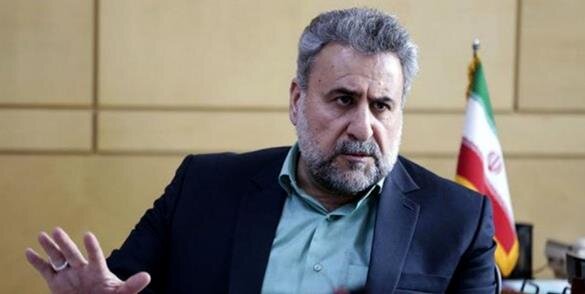

TEHRAN — The former head of the Iranian Parliament National Security and Foreign Policy Committee has said a step-by-step approach is a better way to revive the Joint Comprehensive Plan of Action (JCPOA), stressing that the JCPOA structure was so damaged during the Trump presidency that it could not be revived all at once.
In an interview with IRNA published on Friday, Heshmatollah Falahatpisheh says the JCPOA must be given a chance to be revived step by step.
“The Iranian side in the Vienna talks wants to remove the obstacles to the implementation of the nuclear deal and the lifting of all sanctions, but the American side says that it will only lift the JCPOA-related sanctions. Iran, meanwhile, says the sanctions imposed during the Trump era, although unrelated to the nuclear deal, were aimed at destroying the JCPOA and not reviving it,” the former parliamentarian states.
The professor of political science and international relations at Allameh Tabatabai University said another strategy should be devised to revive the JCPOA.
He explained that in the Geneva agreement on November 24, 2013 – which laid the basis for the conclusion of the JCPOA – the parties agreed on “all or nothing”.
“This approach is still being followed in the Vienna talks, which I think has delayed the resumption of the agreement,” Falahatpisheh stated.
Reviving JCPOA requires moderate and flexible ways
Falahatpisheh called step-by-step and two-stage revival of the JCPOA as a better approach to restore the deal, saying, “JCPOA’s body has been so damaged during Trump’s presidency that it will not be revived all at once. It must be given a chance to be revived and move forward step by step, otherwise the revival of the deal will be made conditional on agreement on all issues, giving third parties the opportunity to take action to carry out destructive actions.”
He added the parties can reach an agreement according to which the United States and Europe can lift the structure of sanctions and in a maximum of two or three months, all sanctions will be lifted and Iran, on the other hand, will agree to an agreement with the Agency (IAEA), build trust as the sanctions are being lifted.
“This is better than not reaching an agreement to revive the JCPOA,” he suggested.
According to the former MP, the revival of the JCPOA requires moderate ways based on operational mechanisms and flexibility, within which the concerns of both sides in a major political decision will be resolved and its operational lifting will be done in a period of two or three months.
“Even the Security Council, as one of the most important pillars of the United Nations, could not guarantee the JCPOA through the Resolution 2231 and prevent the United States from quitting it and ‘stoning’ the nuclear deal,” Falahtepisheh said of the U.S. request for a guarantee.
He noted that it is only power that guarantees the implementation of any agreement.
For example, he said, “If Iran had not responded to the U.S. terrorist act in assassinating General Soleimani by launching a missile attack on the U.S. base in Ain al-Assad or targeting a U.S. drone that had invaded Iranian territorial waters, the United States would not have been negotiating now because the U.S. saw Iran’s power.”
Falahatpisheh added that just as the United States is trying to maintain sanctions as leverage to exert pressure, Iran must also try to maintain its nuclear capabilities, otherwise there is no guarantee that the nuclear deal will survive.
JCPOA revival during transition period will influence next government’s foreign policy
In response to the question that a revival of the nuclear deal in the next government will not be easier, Falahatpisheh said, “If the JCPOA is revived during the transition period, it will be to the benefit of everyone – both Iran and the United States. This is why the Rouhani administration is trying to revive the nuclear deal, because any delay will only make it harder to revive the JCPOA and give the JCPOA opponents more time to obstruct its revival.
He said that the United States knows what the decision-making mechanism in Iran is regarding the nuclear deal.
“If the JCPOA is revived during the transition period, this issue will also affect the foreign policy of the 13th government, otherwise the U.S. delay may make it difficult to revive the agreement,” he said.
The former head of the parliamentary National Security and Foreign Policy Committee stated that now the ball is in the United States’ court for reviving the deal.
Iran is ready to revive the pact and the next government, although it may be critical of it, will remain adherent to it if it is revived.
Since April, diplomats from the remaining parties to the 2015 Iran nuclear deal and the U.S. have held six rounds of talks in a bid to revive the deal. They have made significant progress but failed to get Iran and the U.S. back to full compliance with the nuclear deal.
The sixth round was concluded more than two weeks ago.
SA/PA
 RSS Feed
RSS Feed















 July 10th, 2021
July 10th, 2021  Awake Goy
Awake Goy  Posted in
Posted in  Tags:
Tags: 













